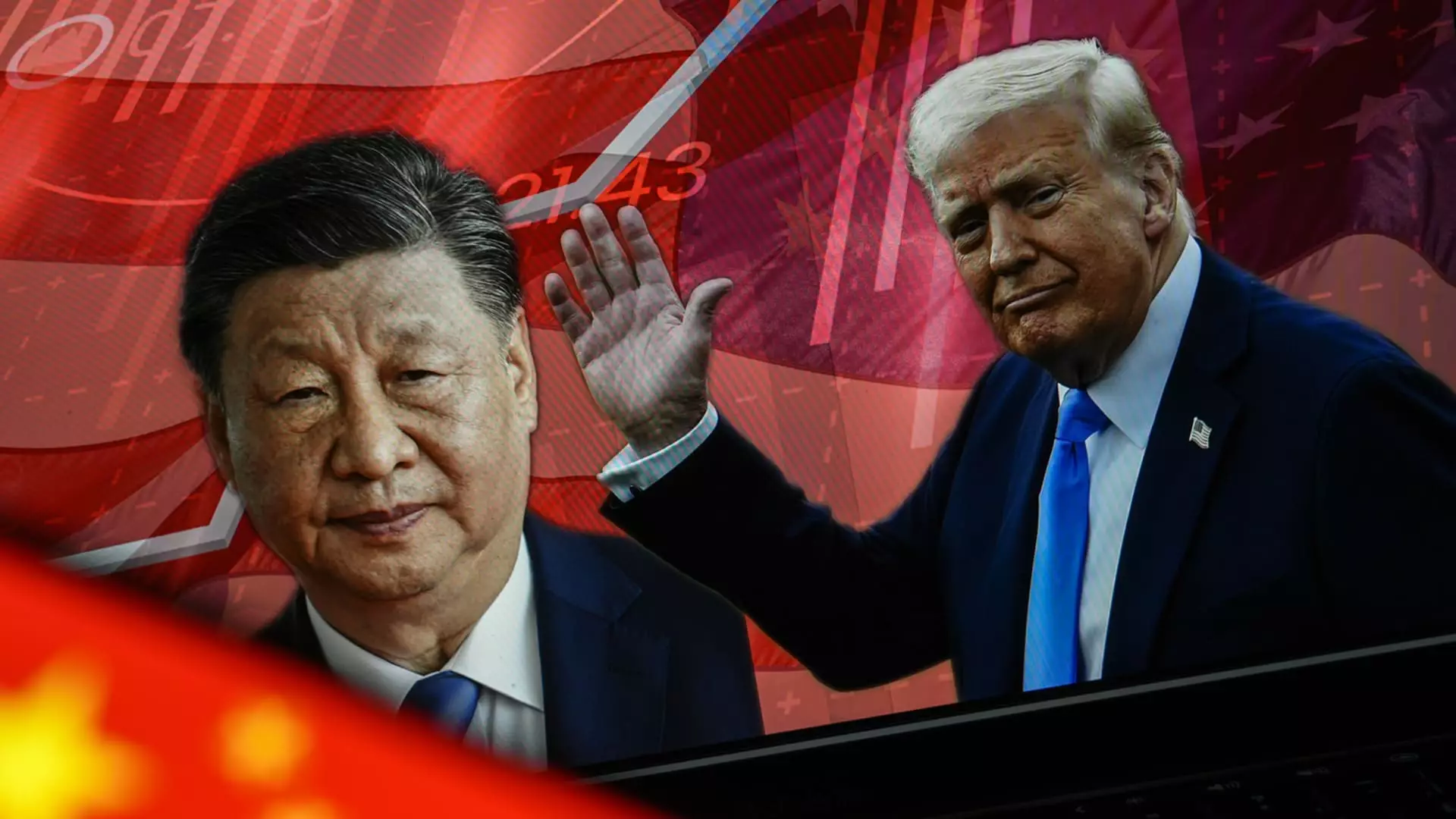The ongoing trade conflict between the United States and China has entered a disconcerting new phase, as both nations escalate their retaliatory measures in a seemingly endless tit-for-tat game. Following a barrage of tariffs instituted by the Trump administration—some as high as a staggering 245%—China has responded not just with counter-tariffs but also by dramatically shifting its tactics to strike at the very heart of the American services sector. This transformation signifies a serious escalation, revealing China’s strategy to outmaneuver the U.S. economically while simultaneously signaling its unwillingness to abide by what it perceives as American bullying.
While President Trump champions tariffs as a mechanism to level the playing field, the reality is that such tactics can often backfire, resulting in retaliatory measures that predominantly harm U.S. firms. The notion that one side can engineer unilateral economic dominance is not only naive but also demonstrates a lack of understanding regarding the intricate interdependencies of global trade. The introduction of punitive duties in a zero-sum game reveals an alarming trend; the larger question looms: are we witnessing the unraveling of a globally cooperative economic framework?
China’s Maneuvering for Strategic Advantage
China’s latest strategies are not merely reactive; they reveal an increasingly sophisticated approach to economic warfare that targets key segments of the U.S. economy. By placing American companies such as DuPont and Google under intense scrutiny through antitrust investigations, Beijing is capable of inflicting reputational damage and crippling operational hurdles on entities that have thrived within its borders.
Moreover, the unveiling of export restrictions on rare earth elements—essential components in modern technology, such as smartphones and missiles—shines a light on China’s pivotal role in global supply chains. This strategic move is far from coincidental; it is a calculated decision aimed at asserting dominance in a realm where the U.S. has relied heavily on Chinese resources. In the grand chess game of international trade, China has positioned itself not just as a pawn but as a formidable queen, able to nullify the moves attempted by its opponent.
Impact on the Services Sector: A Broader Economic Disruption
The implications of this trade war extend well beyond the realm of industrial goods, reaching deep into the services sector—a domain where the U.S. historically enjoys a significant advantage. The Chinese government’s whispers of imposing curbs on American legal consultancy firms underscore the determination to weaken the U.S. services surplus, which amounted to a staggering $32 billion in 2024. By targeting high-visibility sectors such as education and entertainment, China seeks to leverage damages that could ripple through American academia and cultural exports.
This strategy clearly reflects a recognition of the value of soft power, wherein perceptions can have meaningful effects on an economy. The admonitions to Chinese citizens against pursuing educational opportunities in the U.S. carry a visceral weight; it’s an assault not just on trade balances but also on the mutual understanding that education can foster between cultures.
Additionally, as fewer Chinese students choose to study abroad in the U.S.—particularly when their motivations are under siege—the economic ramifications can be felt not only in lost revenue but also in the diminished exchange of knowledge and innovation, a foundational bedrock of U.S. global leadership.
Wider Economic Decoupling: A Dangerous Trend
The chasm between the two nations only seems to deepen as rhetoric intensifies. As analysts observe, the prospect of deeper decoupling between the U.S. and China looms ominously on the horizon, wherein economic interdependence could deteriorate into systemic divergence. This apprehension signals a nostalgic farewell to an era characterized by globalization, trade liberalization, and cultural exchange.
In the grand calculus of international economic relations, it is essential to ask what is at stake—not just for the American economy but for the global community. Are we embarking upon a path where economic engagement is supplanted by isolationist tendencies? If so, the implications for innovation, competition, and the future of international relations are dire. Ultimately, both nations risk falling into a cycle of self-inflicted economic damage, where short-sighted retaliatory measures overshadow the long-term consequences of diminished cooperation.
This is not merely an economic quagmire; it is a critical juncture that could determine how future diplomatic relations evolve. While the idea of watching one nation inflict harm upon another may hold a temporary allure, the underlying reality is one of mutual detriment, a fact that those in power should urgently recognize. The need for genuine dialogue has never been more pressing, and it will require a move toward mutual respect and understanding—qualities that seem increasingly scarce in this highly charged political environment.

